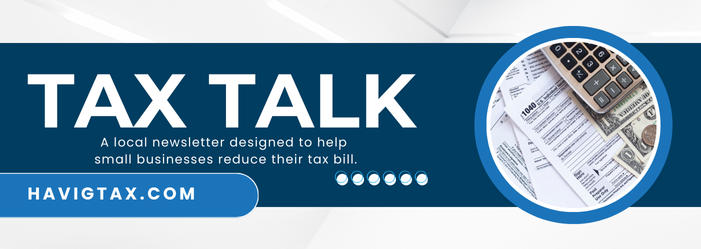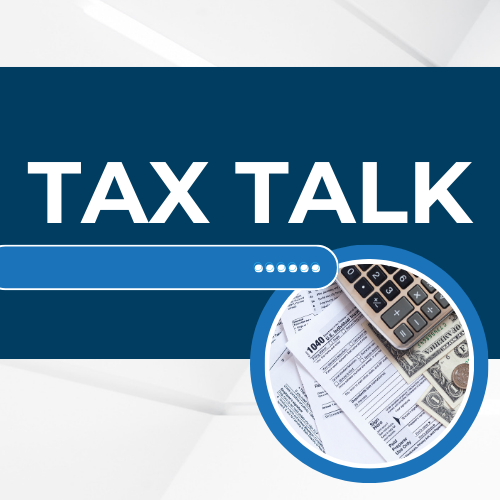July 2024 Newsletter
July 2024 Newsletter

Business Travel Expenses:
Do you have a business trip booked for this summer? As a small business owner, you’re always looking for ways to optimize your expenses and boost your bottom line. One effective strategy is to write off travel expenses related to your business. Here’s a comprehensive guide to help you understand how to maximize your business travel deductions while staying compliant with IRS regulations.
What Qualifies as a Business Travel Expense?
To be deductible, travel expenses must be ordinary (common and accepted in your industry) and necessary (helpful and appropriate for your business). Key deductible travel expenses include:
- Transportation Costs: Airfare, train tickets, rideshare and taxi fares, car rentals, and mileage for personal vehicles used for business travel.
- Lodging: Hotel stays or other accommodations while away from home on business.
- Meals: 50% of meal costs during business trips are deductible. Typically, this includes meals with clients or business partners where business is discussed, although there are special rules about providing meals for the benefits of your employees.
- Incidental Expenses: Tips, dry cleaning, and other small expenses incurred during your trip.
Understanding “Away from Home”
The IRS defines "away from home" as any business travel that requires you to stay overnight or be away from your tax home (the general area where your main place of business or work is located) for a period substantially longer than an ordinary day’s work. Travel within your home city or metropolitan area generally does not qualify as business travel.
Keeping Accurate Records
To substantiate your travel deductions, meticulous record-keeping is essential. Here’s what you need to do:
- Maintain Receipts: Keep receipts for all travel-related expenses, including transportation, lodging, meals, and incidental costs.
- Document the Purpose: Note the business purpose of each trip, including who you met with, the topics discussed, and how it relates to your business.
- Use a Travel Log: Maintain a detailed log of your travel dates, destinations, and expenses. This can be done through a digital app or a physical notebook.
Combining Business and Personal Travel
It’s possible to combine business and personal travel, but you must be careful to only deduct the business portion of your trip. Here’s how:
- Primary Purpose of Trip: If the primary purpose of your trip is business, you can deduct travel expenses to and from your destination. However, personal expenses during the trip are not deductible.
- Allocation of Expenses: Allocate expenses between business and personal days. For example, if you spend three days on business and two days on personal activities, only the expenses for the business days are deductible.
Special Considerations for International Travel
International travel deductions follow similar rules but with additional scrutiny. Be prepared to demonstrate that the primary purpose of your international trip is business and that any personal activities did not significantly impact your business activities.
Common Pitfalls to Avoid
- Inadequate Documentation: Without proper documentation, your deductions may be disallowed during an audit. Keep detailed records of all expenses and business activities.
- Mixing Personal and Business Expenses: Clearly separate personal and business expenses. Use different credit cards or accounts if necessary to keep them distinct.
- Non-Deductible Expenses: Entertainment expenses are generally not deductible, and lavish or extravagant travel expenses may be scrutinized and potentially disallowed by the IRS.
Writing off travel expenses can significantly reduce your taxable income and enhance your business’s financial health. By understanding what qualifies as a deductible travel expense and maintaining meticulous records, you can maximize your deductions while staying compliant with IRS regulations.
For more personalized advice, consider consulting with a tax professional who can provide guidance based on your specific business circumstances. Staying informed and proactive about your travel deductions will help you make the most of your business trips and contribute to your overall business success.
Maintaining Your S Corp
Running a small business as an S Corporation offers many benefits, including tax advantages and limited liability. However, maintaining your S Corporation status requires careful attention to specific legal and administrative requirements. Here’s a comprehensive guide to help you keep your S Corporation in good standing.
Stay Compliant with State Requirements
Each state has its own regulations for S Corporations. Ensure you:
- File Annual Reports: Most states require an annual report detailing your company’s current status. Stay up-to-date with state fees, which can include franchise taxes or annual filing fees.
- Maintain a Registered Agent: Your registered agent must be available during normal business hours to receive legal documents.
Hold Regular Meetings
Despite being a small business, it’s crucial to hold:
- Annual Shareholder Meetings: Document the minutes of these meetings to demonstrate adherence to corporate formalities.
- Board of Directors Meetings: Keep detailed records of decisions made, which can be important if your business is ever audited or involved in litigation.
Maintain S Corporation Election
To retain your S Corporation status:
- Adhere to Eligibility Requirements: Ensure you have no more than 100 shareholders, all of whom must be eligible (e.g., U.S. citizens or resident aliens).
- Timely Filing of IRS Forms: File IRS Form 1120S, your corporate tax return, on time each year. Also, provide shareholders with Schedule K-1 forms to report their share of the corporation’s income.
- Continuously Review Financial Practices: Ensure your financial practices are up-to-date and compliant with current tax regulations.
- Consult with Tax Professionals: Regularly consult with your accountant or tax advisor to stay informed about changes that could affect your business.
Keep Up with Employment and Payroll Taxes
Compliance with employment and payroll tax requirements is essential:
- Pay Salaries to Shareholder-Employees: As an S Corp, you're required to put yourself on payroll with a reasonable salary and to withhold payroll taxes.
- File Employment Tax Forms: Submit forms such as Form 941 (quarterly federal tax return) and Form 940 (annual federal unemployment tax return) as required.
- Consider a professional pay roll service: They will file your 941 and 940 forms for you, and ensure that payroll taxes are being withheld and paid correctly.
Prepare for Succession
Plan for the future of your business:
- Develop a Succession Plan: Establish a clear plan for the transfer of ownership in the event of retirement, sale, or unforeseen circumstances.
- Review Shareholder Agreements: Regularly review and update shareholder agreements to reflect changes in your business or personal circumstances.
For more information and resources, consider joining local business associations or seeking advice from business mentors who have experience with S Corporations. By staying proactive and informed, you can focus on growing your business with confidence.















